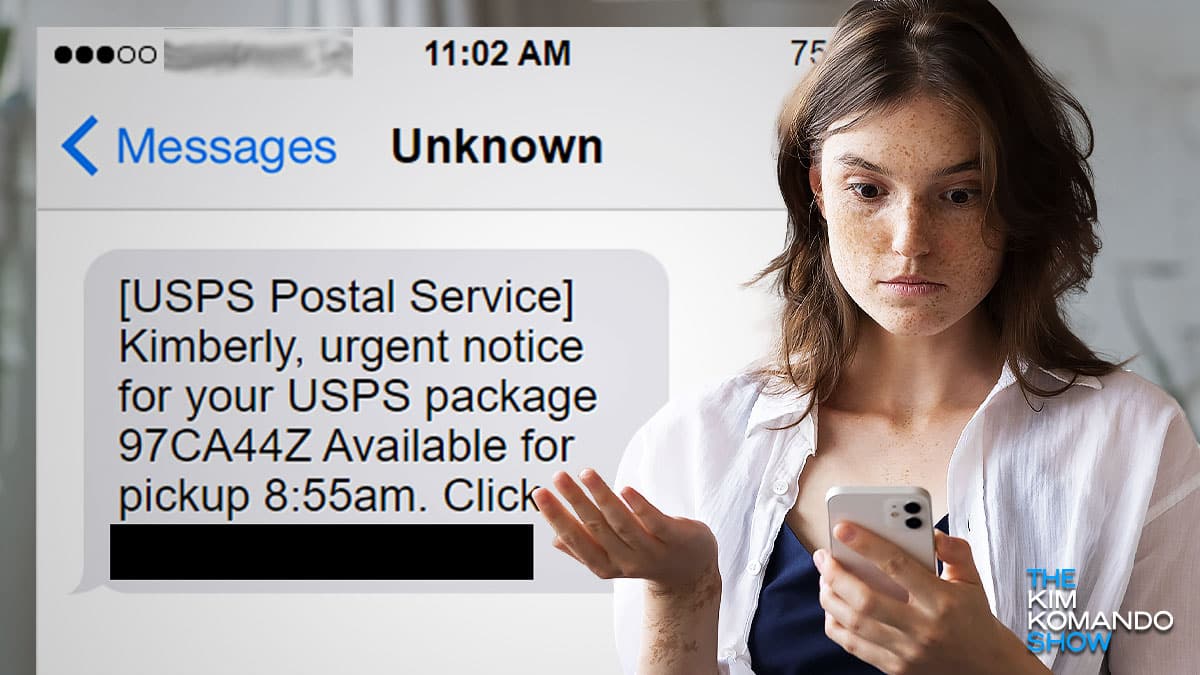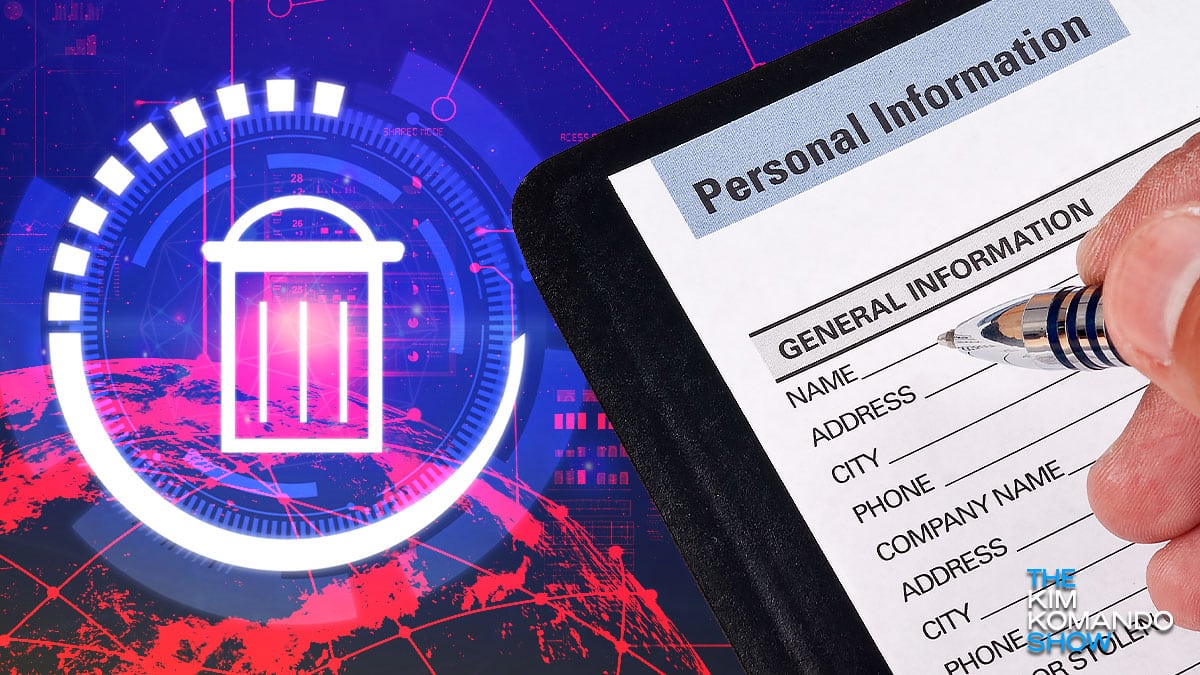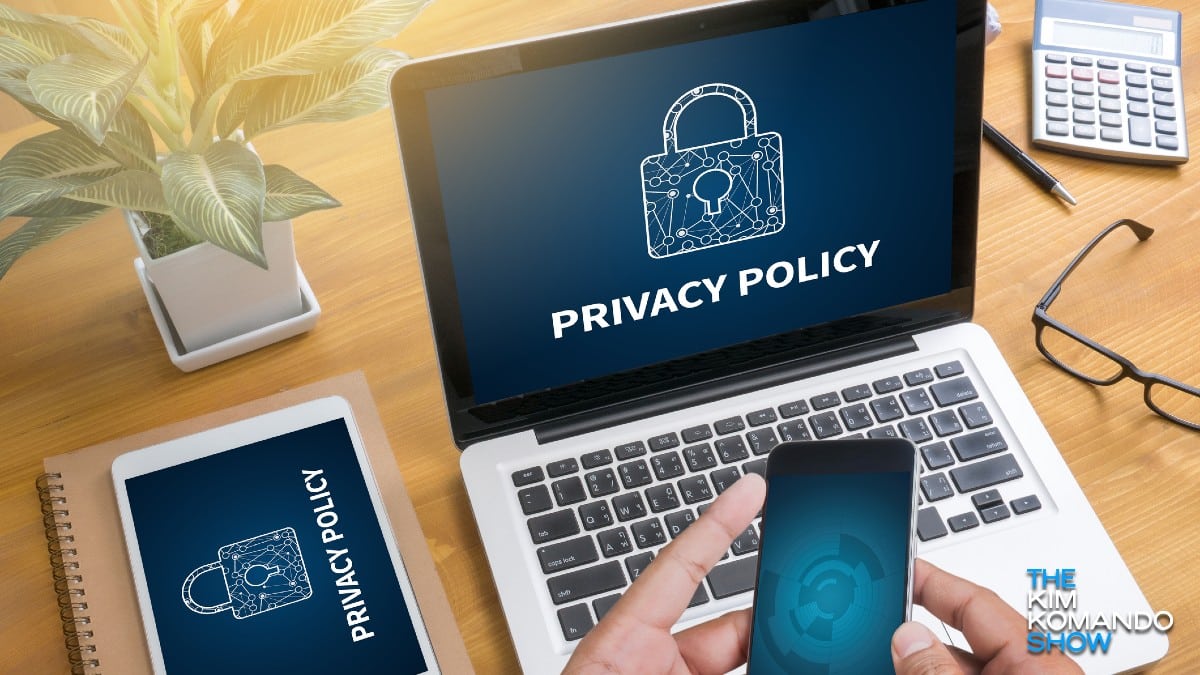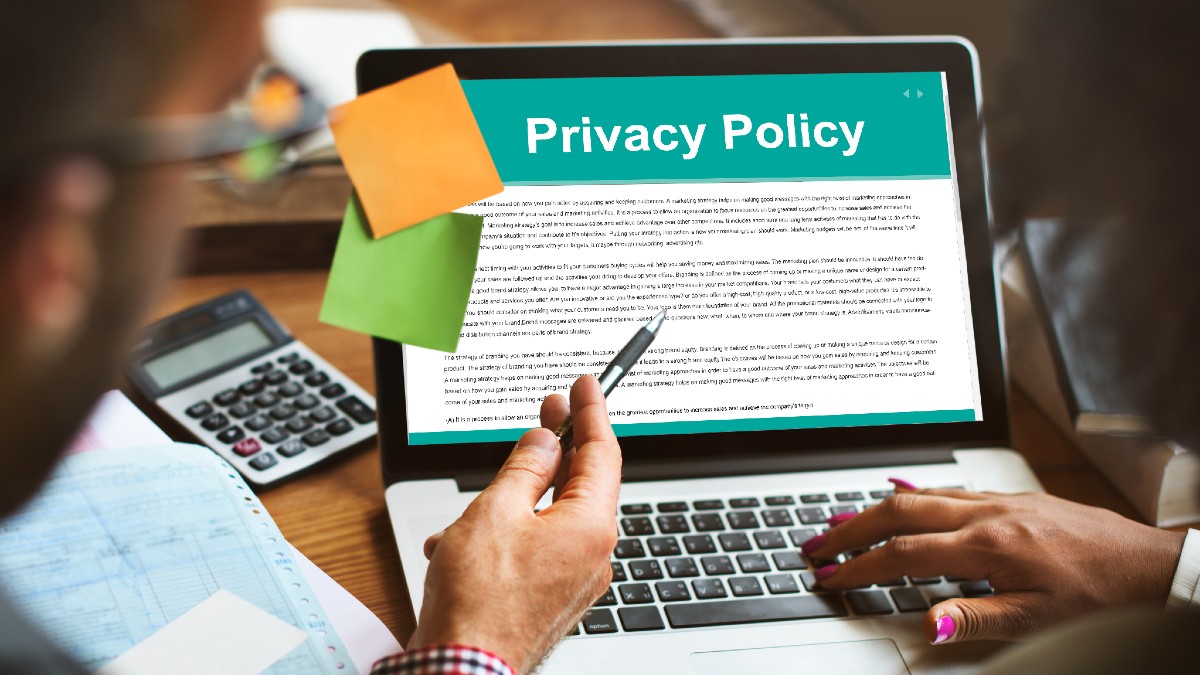We talk to Darius from Incogni, who tells us how you can remove your personal data from the internet. Plus, a family claims an Amazon driver stole their cat, people are yelling a lot at Siri, and there’s a new sober dating app.
What you need to know about DeepSeek

I’ve been saying it for years: The country that masters AI will dominate the world economically, politically and militarily. Since ChatGPT dropped, the U.S. seemed untouchable. Most of us Americans assumed we were a couple of years ahead of China in terms of AI, but the game has changed — and fast.
The latest version of DeepSeek AI, an open-source model out of China, is so good, it tanked U.S. tech stock prices (Nvidia lost $593 billion in value!), shot to No. 1 in the Apple App Store overnight and now has the entire world wondering, “If this is what China is showing us, what’s next?”
Move over, OpenAI
DeepSeek was founded in May 2023 in Zhejiang, China. Its first models were nothing to write home about; the latest release, DeepSeek-V3, is another story.
It was developed in just 55 days, trained on 671 billion parameters and performs as well as (or better than) Meta’s Llama, OpenAI’s GPT-4o and Anthropic’s Claude Sonnet 3.5 in math, coding and reasoning. Let that sink in. It took China just two months to beat the American giants.
The money is where it gets really interesting. OpenAI spent $5 billion on its model in just one year. Google shelled out $50 billion on AI development in 2024. Microsoft has invested $13 billion into AI partnerships.
What about DeepSeek? They spent $5.6 million. It’s a cheap Chinese knockoff.
How’d they do it?
China put together a group of young, ambitious, super-smart engineers and researchers who worked under strict limitations. The official story is they couldn’t use Nvidia’s top-tier H100 chips because of U.S. export restrictions. Instead, they worked with less powerful H800 chips.
Rumors suggest China started with over 10,000 super-powered H100 Nvidia AI chips purchased before the Biden administration’s sanctions kicked in. There are also whispers they stole OpenAI’s code as the foundation for DeepSeek-V3.
But here’s the thing: Even if they took someone else’s code, it doesn’t matter anymore. DeepSeek runs efficiently on far fewer chips, uses less electricity and is cheaper to operate than its American counterparts.
The real game-changer is right here
Why I used Incogni to wipe my info off the internet

I got this note the other day from Mike S. (Hi, Mike! 👋): “Next time you talk about Incogni, maybe you can do a deep dive?”
Mike, you’re not the only reader who’s asked for a more in-depth look at how Incogni works and why I chose it to wipe my info from data broker sites. I picked this service before they became a sponsor. So, without further ado …
How I got my cell phone number off the internet
Shortcut to reading annoying privacy policies

Tech privacy policies are confusing on purpose. I know, big shocker! But I’m always surprised by just how difficult these things are to comb through and what they hide.
Today, I’m calling out the biggest offenders — and sharing one of my favorite, easy-to-use privacy tools.
Are your smart devices tracking too much?
Your smartwatch is great for tracking steps, but have you ever thought about where all that personal data actually goes?
From sleep patterns to calorie intake, it’s like a digital diary — and it’s worth billions to insurance companies, marketing outfits, advertisers and, of course, hackers. Don’t panic! I’ll walk you through how to lock down your privacy.
How to remove personal data from data-broker sites (Spoiler: I use Incogni)

I’ll never forget when my son, Ian, asked me where in Los Angeles I lived. I told him I couldn’t remember — it was 30 years ago, and I lived there for maybe six months. A few minutes later, he called and had the address. It was available for free to anyone on the internet on an online people search directory.
Data brokers are selling your life. Here’s how to stop them.

The data broker industry is worth almost $400 billion. Whether it’s your Google Search history, movies you’ve streamed or a summary of your last doctor’s visit, they’re keeping tabs on your life.
Feel violated? You should. These brokers even sell your data to scammers so they can use it to target you. No wonder most people get overloaded with spam texts and calls every day.
Area codes and numbers that are probably spam

Whew, the election’s over. The onslaught of robocalls and texts is over, too … right? Nope.
There are fewer political calls and messages, sure, but there are always scammers and spammers. It may be easier for these creeps to get a hold of us now that our phones aren’t constantly lighting up with election-related notifications.
Best way to stop spam texts for good

“Official notice from USPS. Your delivery is on hold.” I wonder why …
“Hi, how are you?” Who could this be?
I wasted 36 hours trying to do it myself

So many of the calls, emails, messages and DMs I get are about privacy and security. I can’t remember the last time I had a full day where no one asked me some version of “How do I get all this info about me off the internet?”
AT&T data breach: Who’s at risk and what to do now

AT&T dropped some big and very bad news this morning: “Nearly all” customers had text and call data leaked in a massive cyberattack. We’re talking 95 million people.
“Kim, really? Another data breach?” I know, but don’t tune this one out. It has scary implications for your privacy.
How to deal with a cyberstalker

Let me tell you, more and more victims of cyberstalking are reaching out to me for advice using my Ask Kim page. Here’s one note I received recently from P.W. in Oklahoma:
“I’ve been cyberstalked for three years. I recently discovered it was my roommate. I moved out and he launched another attack. He’s on my and my fiance’s phones, Wi-Fi, Bluetooth — everything. He has stolen financial data, pictures, erased accounts, taken over emails and harassed me through VOIP. … He admitted to sitting outside our house all night. I thought he was spying on me. Now I know he was also gaining access to my Wi-Fi. I can’t do this anymore and need expert advice/help terribly.”
Your data is worth big money — and you can take it back

“Call me for a good time.” That simple message prompted more creepy calls and texts than you can believe. A woman contacted me after someone posted that message — alongside her cellphone number — on a porn site.
How to delete yourself from the internet

I feel lucky to have the job I do. Every day, I help folks stay up to date on tech and help solve all those digital-life problems Google just can’t answer.
And after all these years, I’ll toot my own horn a little and say there’s not much that stumps me anymore. I did get a question recently, though, on my daily podcast that had a not-so-happy answer.
How to remove yourself from US Search

Like it or not, your personal information is online for anyone to find. This can include your full name, address, phone number, police record, employment information and more. People search sites scrape this information from public records, court records, social media and other sources.
Overwhelmed with spam texts? Do this now

Ever replied to a spam message with STOP or UNSUBSCRIBE? If so, you’re setting yourself up for even more annoyance. You rightfully think that you’re ending the noise, but you’ll make it worse.
Why? Spammers are hitting up as many people as possible, searching for working contact information. When you interact, you’re saying, “Yes, this phone number belongs to someone!” That’s great news for them. It lets them know you’re a real person they should target more often.
Take back control of your online privacy

Newsflash: Your data is constantly being collected and sold. “Gee, thanks, Kim. I know,” you might be thinking. “What do I do about it?” Lucky for you, I spend a lot of time trying to answer that exact question.
If you’re tired of spam calls, unwanted emails and that nasty feeling of always being tracked, keep reading. I’ve got a simple way to take a massive chunk out of this data collection mess, thanks to our sponsor, Incogni.
Simple digital privacy step everyone should know about

Data brokers, people search sites and online background check services, oh my. At the end of the day, they all do the same thing — scoop up your personal info and sell it to anyone interested. Marketers are at the top of the list, but scammers can also find your information this way.
Opt-Out Tuesday: How to remove your info from FamilyTreeNow

People search sites collect your information from publicly available sources and offer it to anyone interested, including thieves and scammers. There are countless sites like this. So, how do you protect your data? You need to remove it.
Bad news: Here's how much your social media logins cost on the Dark Web

What if I told you for just $12, someone could buy your Instagram login. They could read all your messages, look through everything you’ve “liked” and even post as you.
Whizcase gathered prices from Dark Web marketplaces to see how much your online identity is worth, and it’s grim.
